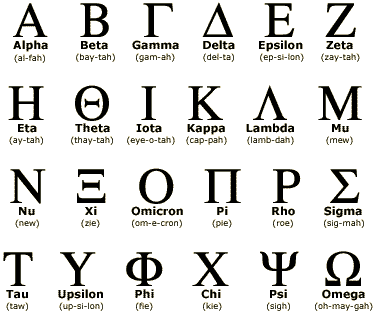
If you get involved with a Greek man/woman, it would be wise for you to learn the basics of the language. This is so that you can understand what the potential in-laws / siblings / cousins / neighbours / family grocer may be saying about you.
There are many excellent language books and audio CDs now available to help you learn a new language but nothing is better than immersing yourself in the culture itself and just speaking in the foreign tongue whenever you can.
When my mother first started teaching ballet in Greece, her knowledge of the language was minimal. During one lesson she told her students to stand up straight and pull up their bodies. After being met with confused silence followed by hysterical laughter, she realized her mistake. The word for “body” in Greek is “σώμα”, “soma”. The word for “bread” in Greek is “ψωμί”, “psomi” (with an almost silent “p”). So she had been instructing the students to pull up their bread, rather than their body.
To help you avoid such embarrassing episodes, I have compiled a short list of everyday words and phrases that you may need during the course of your Greek courtship. I have excluded swear words (sorry to disappoint).
- Hello/Goodbye (Same) – γεια σας – yia sas
- Goodmorning – Καλημέρα – Kali̱méra
- Goodafternoon – καλησπέρα – kalispera
- Goodevening/goodnight – καληνύχτα – kali̱nýchta
- Foreigner – ξένος – xeno
- Wife/Woman – γυναίκα – yineka
- Husband/Man – άνδρας – andras
- Brother – αδελφός – ad(th)elfós
- Sister – αδελφή – ad(th)elfí̱
- Child – παιδί – ped(th)i
- Family – οικογένεια – oikoyéneia
- Church – εκκλησία – ekkli̱sía
- Priest – παπάς – Babas
- Happy Easter – Χριστός Ανέστη – Christos Anesti
- Merry Christmas – Καλά Χριστούγεννα – Kalá Christoúyenna
- Happy New Year – καλή πρωτοχρονιά – kali protochronia
- Happy Birthday – χρόνια πολa – xronia pola
- Mum and Dad – μπαμπάς kai μαμά – Baba and Mama. My mother calls her in-laws “mum” and “dad”. The more formal words which you could use are “father” and “mother” – πατέρα kai μητέρα – Patera and Mitera. (Beware: one friend tried to be respectful and started calling her mother-in-law “Mama” only to be told, “I’m not you’re mother”. Check with your partner/husband first.)
- My name is – το όνομά μου είναι – to ónomá mou eínai OR Με λένε – me lene…
- I am not Greek – Εγώ δεν είμαι Έλληνας – Egó̱ den eímai Élli̱nas
- How are you? – τι κάνετε; (semi-colon for question mark) – ti kánete?
- I am fine/ good – είμαι καλά – eímai kalá
- I am not fine – δεν είμαι καλά – den eímai kalá
- Are you hungry? – Πεινάς; – Peinás? (for those of you with dirty minds yes I realize that this word looks/ sounds dodgy)
- I am hungry – πεινάω – peináo̱
- I want – θέλω – thelo
- Yes – ναί – nai
- No – όχι – ochi
- I like you – Μου αρέσεις – mou aréseis
- I don’t like you – δεν μου αρέσεις – then mou aréseis
- We are getting married – παντρευόμαστε – pantrevomaste
- I don’t understand – Δεν καταλαβαίνω – Then katalavaíno̱
- Go away – φύγε – fýge
- Leave me (alone) – άσε με – áse me
- This is my house – αυτό είναι το σπίτι μου – af̱tó eínai to spíti mou
- I am leaving – φεύγω – fév̱go̱
- Have a good journey – καλό ταξίδι – kaló taxídi
- Don’t go – μην πας – min bas
- I am sorry – συγνώμη – sygnó̱mi̱
- I forgive you – συγχωρώ – syncho̱ró̱
- I love you – Σ ‘αγαπώ – S ‘agapó
Good luck!
